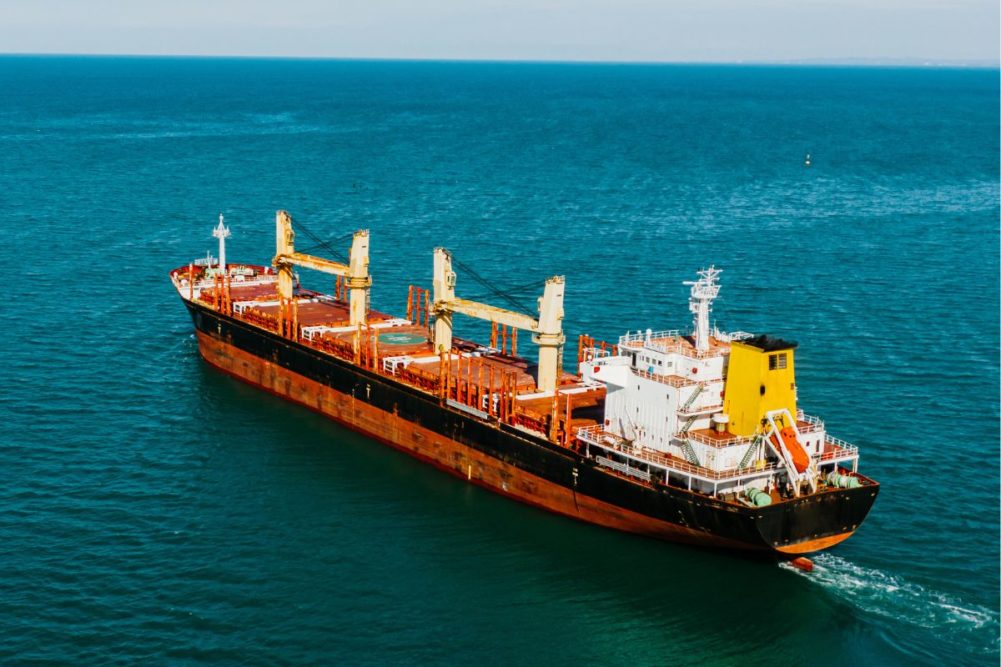LONDON, ENGLAND — With about 50 million tonnes of grains and oilseeds aboard ships around the world at any time, improved use of real-time shipping data is crucial to global food security, Anita Katial, chair of the International Grains Council (IGC), told attendees at the council's recent seminar delving into the issue.
That message with an emphasis on a resilient and efficient supply chain flowed throughout the gathering, “International grains, oilseeds and rice trade: improving the availability of real time information,” co-hosted by the IGC with the delegation of Japan on Dec. 4 at the House of Japan in London, England.
With the support from the Japanese government, the event brought together representatives of leading shipping data providers, port and freight industries, exporting companies, innovative market data platforms, freight analysts, as well as international organizations and embassies.
“With roughly one-half of seaborne grains and oilseeds deliveries taking more than 30 days, dry bulk fleet can be viewed as a type of short-term storage,” said Katial, who also is the agricultural counselor for the United Kingdom and the Republic of Ireland at the US Embassy in London. “Around 50 million tonnes of grains, oilseeds and rice is afloat around the world at any point in time, making the analysis of real time shipping data a matter of food security.”
Seminar participants noted constantly improving availability and reliability of real-time shipping information based on the Automatic Identification System (AIS) and International Maritime Organization ship identification numbers.
While the expanded use of modeling allows remaining data gaps to be filled, manual analysis and inputs are still required, due to difficulties with determining the origin of some transshipped cargoes and retrieving commodity-specific information. Participants highlighted opportunities for improving the quality of real-time shipping data via the incorporation of commodity- and freight-related information from innovative market platforms such as Covantis and Shipnext.
The IGC shared its experience in using real-time data for the analysis of grains supply and demand, calculating freight rates, assessing the consequences of disruptive market events and monitoring of food security. The latter is conducted via the IGC-World Trade Organization (WTO) wheat dashboard launched in May 2023 with an additional IGC project spanning other grains and oilseeds to be launched in early 2024.
The representative of the Port of Vancouver, Canada’s largest port handling grains and oilseeds cargoes, stressed the importance of real-time data for building resilient supply chains, including inland logistics and port operations. In light of more frequent disruptive events, real-time data plays a pivotal role in facilitating the recovery of cargo flows after interruptions, as well as in guiding infrastructure investment decisions, while also supporting efforts to enhance fuel efficiency and decarbonize the shipping industry.
Participants discussed prospective areas for the use of real-time shipping data, including the simulation related to policies for carbon shipping emissions, such as the tax policy discussed by the European Union and due to come into force on Jan. 1.
Containerized trade was identified as one of the key areas for improvement, given the poor availability of container-specific information, despite the fact that around 10% of grains, oilseeds and pulses and 60% of global rice trade is done via containers.
While the smart container technology, presented by the Mediterranean Shipping Co., could help improve tracking of containerized goods and enhance data availability, the still limited application of such technologies and sensitivity of commercial information remain the main obstacles for expanded data sharing.
The seminar has laid the foundation for a wider discussion on the ways to expand the availability and the application of real-time shipping data, with further events on related topics envisaged in the year ahead.
“As the G7 Presidency this year, Japan has prioritized food security as an issue of concern,” said Eriko Komiya, agricultural counselor at the Embassy of Japan. “Japan is supporting the IGC in strengthening its efforts to collect and analyze grain trade data which contributes to global food security, for example by establishing a mechanism for sharing grain distribution information.”




